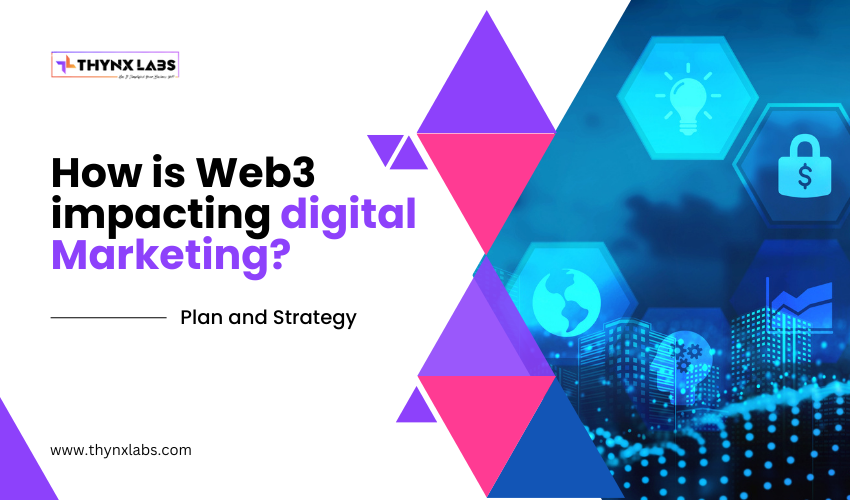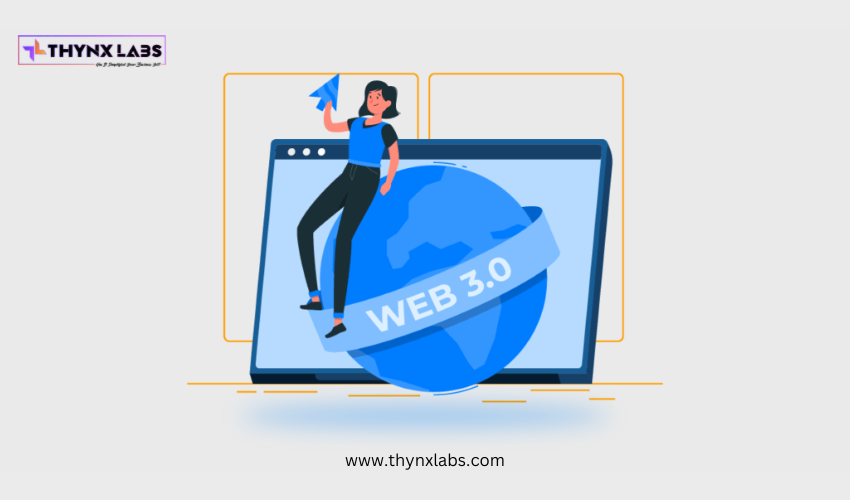How is Web3 impacting digital marketing?
Web3, the third iteration of the World Wide Web, is a decentralized and distributed network that enables users to interact with digital content and services without relying on intermediaries such as tech giants or centralized platforms. Web3 is built on blockchain technology and is characterized by features such as transparency, trustlessness, and immutability. As the Web3 ecosystem continues to evolve, it is having a significant impact on the digital marketing industry. In this article, we will explore some of the ways in which Web3 is impacting digital marketing.
1. Decentralization of Advertising
Web3 is changing the advertising landscape by enabling a decentralized advertising ecosystem. In the traditional advertising model, advertisers work with intermediaries such as ad networks, exchanges, and publishers to reach their target audience. These intermediaries take a significant cut of the advertising spend, and advertisers have limited control over their ad campaigns. In Web3, advertisers can work directly with content creators and publishers, cutting out intermediaries and reducing costs. This model is more transparent, and advertisers can have greater control over where their ads are displayed and who sees them.
2. User Privacy
Web3 is focused on user privacy, and this is a significant factor that is impacting digital marketing. In the traditional advertising model, user data is collected by intermediaries such as social media platforms, ad networks, and publishers. This data is used to target users with ads based on their interests and browsing history. In Web3, user data is owned and controlled by the users themselves, and they can choose to share it with advertisers or not. This gives users more control over their data and reduces the risk of data breaches.
3. Tokenization
Web3 is characterized by the use of tokens, which are digital assets that represent value. Tokens are used for various purposes, such as rewarding users for their engagement with content, facilitating transactions, and as a means of exchange. Tokenization is having a significant impact on digital marketing by enabling new business models, such as pay-per-view and pay-per-engagement. Content creators can earn tokens for their work, and users can earn tokens for their engagement with content. This model incentivizes users to engage with content and rewards creators for their work.
4. Smart Contracts
Web3 is built on blockchain technology, which enables the use of smart contracts. Smart contracts are self-executing contracts with the terms of the agreement between buyer and seller being directly written into lines of code. Smart contracts are having a significant impact on digital marketing by enabling new revenue streams, such as micropayments and royalties. Content creators can use smart contracts to receive payments for their work, and advertisers can use smart contracts to pay for ad campaigns. Smart contracts are more efficient and reduce the risk of fraud and disputes.
5. Community Building
Web3 is facilitating the creation of online communities that are focused on specific niches or interests. These communities are built around shared values and interests, and they enable content creators to engage with their audience in a more meaningful way. Community building is having a significant impact on digital marketing by enabling content creators to build brand loyalty and trust. By engaging with their audience on a more personal level, content creators can foster a sense of community and create a more loyal fan base.
6. Metaverse
Web3 is paving the way for the development of the metaverse, a virtual world where users can interact with each other and digital content in a more immersive way. The metaverse is having a significant impact on digital marketing by creating new opportunities for brands to engage with their audience. Brands can create virtual experiences, such as virtual events and product launches, that enable users to interact with their products and services in a more immersive way. The metaverse is also enabling new forms of advertising, such as virtual billboards and product placements.
7. Transparency and Trust
Web3 is characterized by transparency and trustlessness, which are having a significant impact on digital marketing. In the traditional advertising model, there is often a lack of transparency around how user data is collected and used. In Web3, user data is owned and controlled by the users themselves, and they can choose to share it with advertisers or not. This transparency builds trust between advertisers and users, which is critical in building a loyal customer base.
8. User-Centric Approach
Web3 is placing the user at the center of the digital experience, which is having a significant impact on digital marketing. In the traditional advertising model, the focus is on the advertiser and their product or service. In Web3, the focus is on the user and their experience. Advertisers need to create content and experiences that are engaging and valuable to users if they want to succeed in this new environment. This user-centric approach is forcing advertisers to be more creative and innovative in their approach to marketing.
9. NFTs
Non-fungible tokens (NFTs) are unique digital assets that are creating new opportunities for content creators and advertisers. NFTs can be used to represent digital art, music, videos, and other types of digital content. This enables content creators to monetize their work in new ways, such as by selling limited-edition digital art or music. NFTs are also being used in digital marketing campaigns, such as by creating limited-edition NFTs as part of a product launch or promotion.
10. Cross-Platform Integration
Web3 is creating new opportunities for cross-platform integration, which is having a significant impact on digital marketing. In the traditional advertising model, advertisers need to work with intermediaries such as ad networks and publishers to reach their target audience across multiple platforms. In Web3, advertisers can use tokens and smart contracts to create seamless experiences across multiple platforms. For example, a content creator could use tokens to reward users for engaging with their content on social media, and then use smart contracts to pay for an ad campaign on another platform.
In conclusion
Web3 is having a significant impact on digital marketing by enabling new business models, facilitating user privacy, promoting transparency and trust, and fostering community building. The use of tokens, smart contracts, and NFTs is creating new opportunities for monetization and cross-platform integration, and the user-centric approach is forcing advertisers to be more creative and innovative in their approach to marketing. As the Web3 ecosystem continues to evolve, it will be exciting to see how it transforms the digital marketing industry.
FAQ's
Sure, here are some frequently asked questions related to Web3 and digital marketing:
Q.1 What is Web3?
Web3 is the next generation of the internet that is characterized by decentralized, peer-to-peer networks and technologies such as blockchain, smart contracts, and decentralized applications.
Q.2 How is Web3 different from Web2?
Web2 is the current state of the internet, which is characterized by centralized platforms and services. Web3, on the other hand, is decentralized and trustless, enabling users to interact directly with each other without the need for intermediaries.
Q.3 What are some examples of Web3 technologies?
Examples of Web3 technologies include blockchain, smart contracts, decentralized applications (dApps), and decentralized finance (DeFi) protocols.
Q.4 How is Web3 impacting digital marketing?
Web3 is having a significant impact on digital marketing by enabling new business models, promoting user privacy and trust, fostering community building, and facilitating cross-platform integration.
Q.5 What are some Web3-based business models for digital marketing?
Web3-based business models for digital marketing include token-based reward systems, decentralized affiliate marketing, and NFT-based promotions.
Q.6 How can advertisers build trust with users in the Web3 environment?
Advertisers can build trust with users in the Web3 environment by being transparent about how user data is collected and used, respecting user privacy, and creating engaging and valuable content that puts the user at the center of the digital experience.
Q.7 What are some challenges associated with Web3 and digital marketing?
Challenges associated with Web3 and digital marketing include the complexity of the technology, the need for new skills and expertise, the lack of regulation and standardization, and the potential for fraud and scams.


